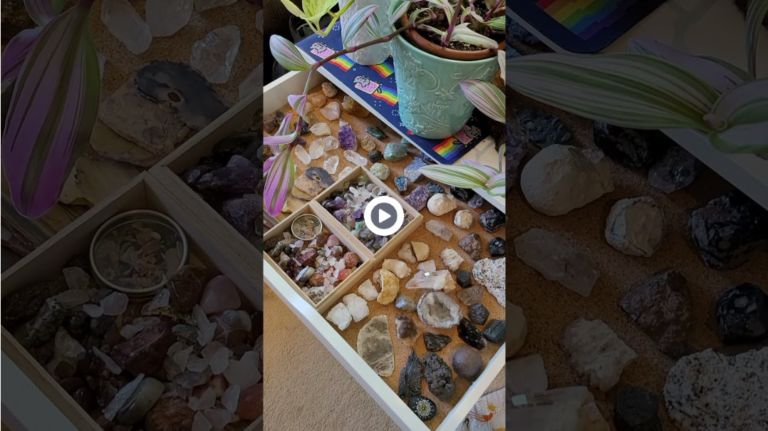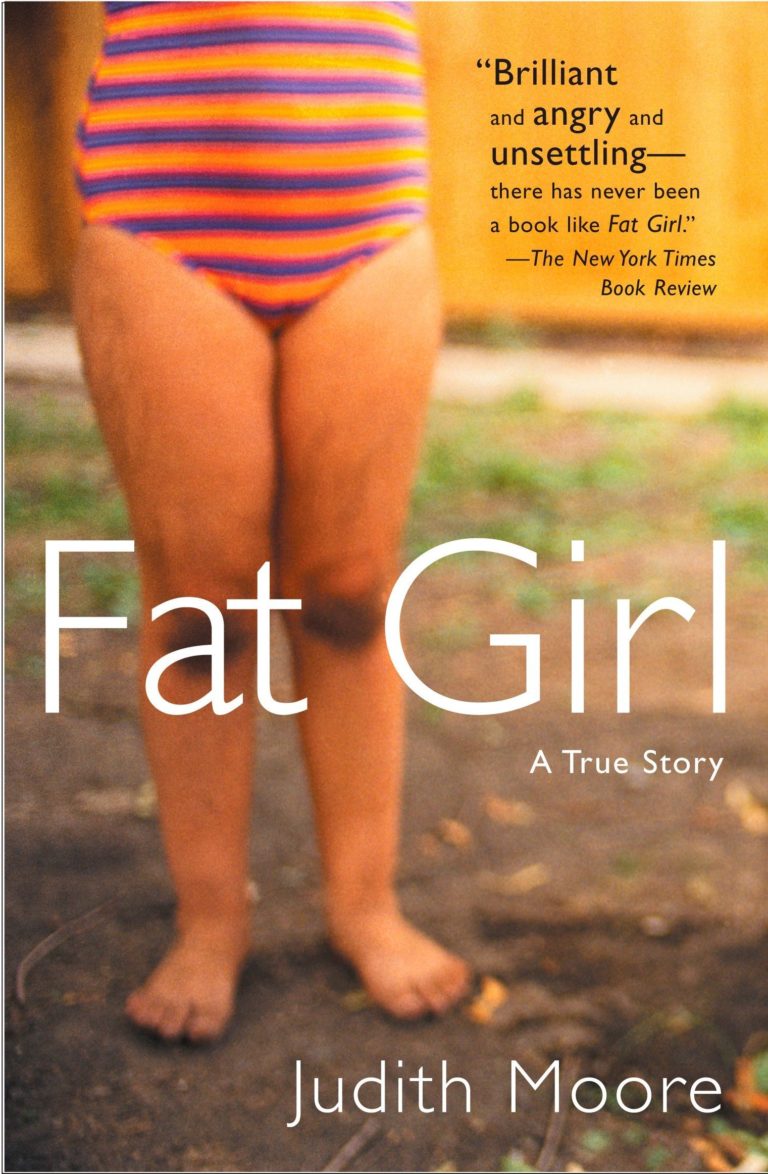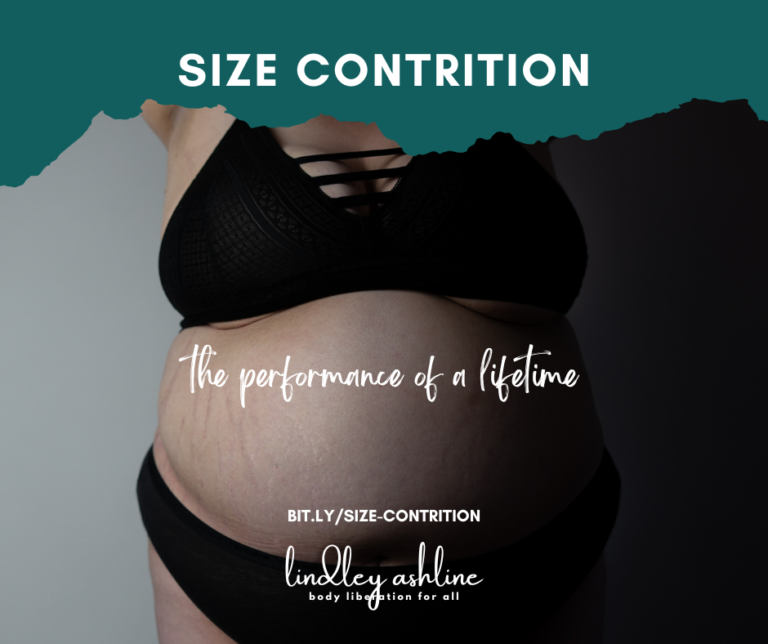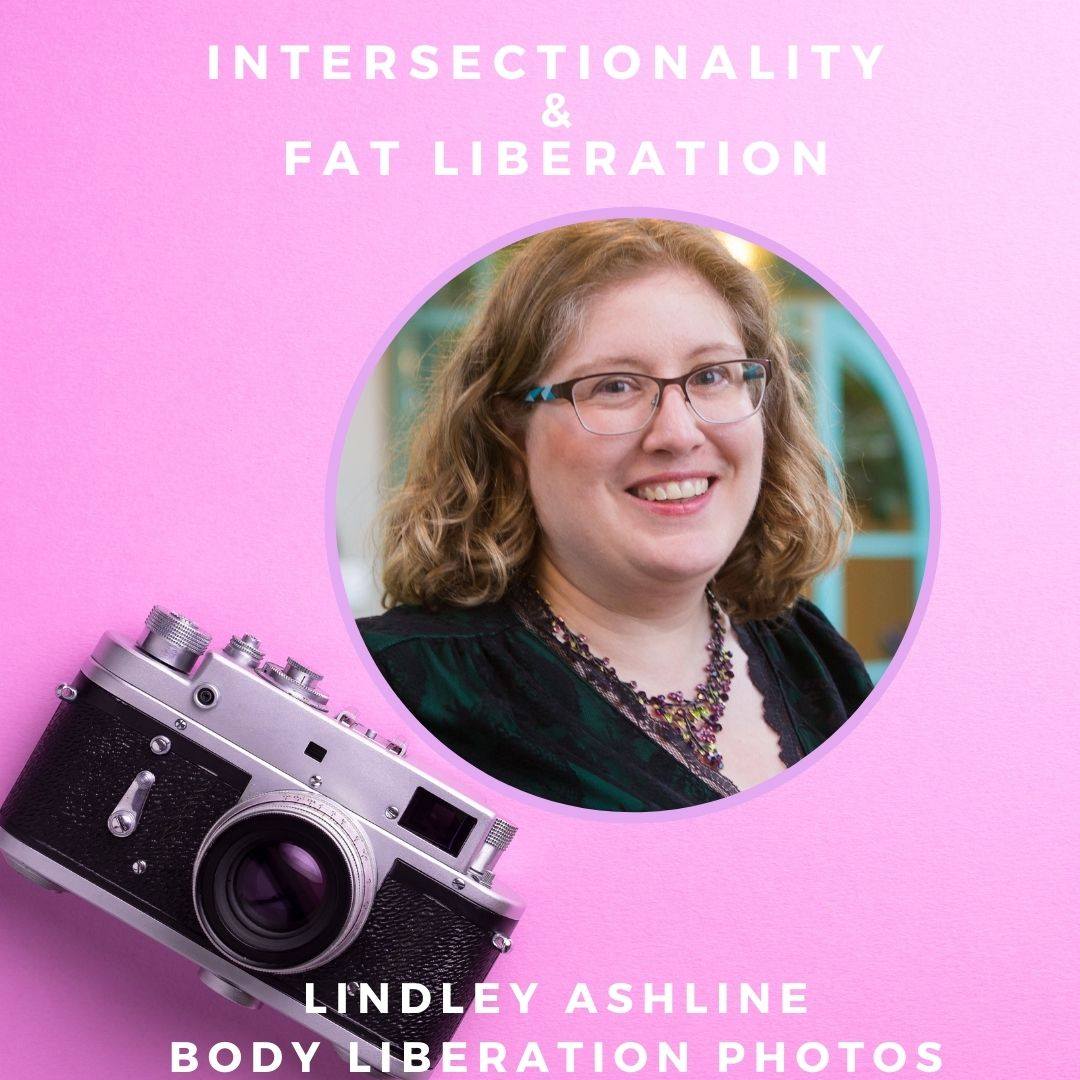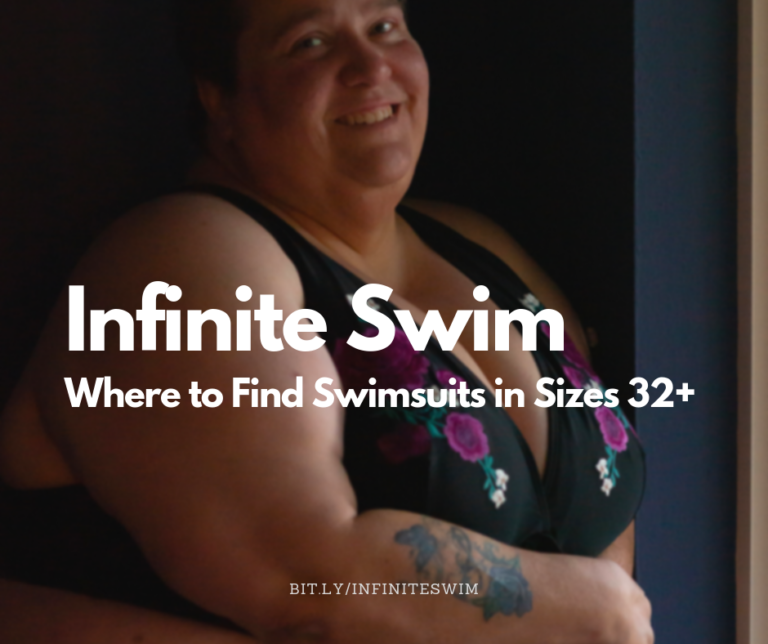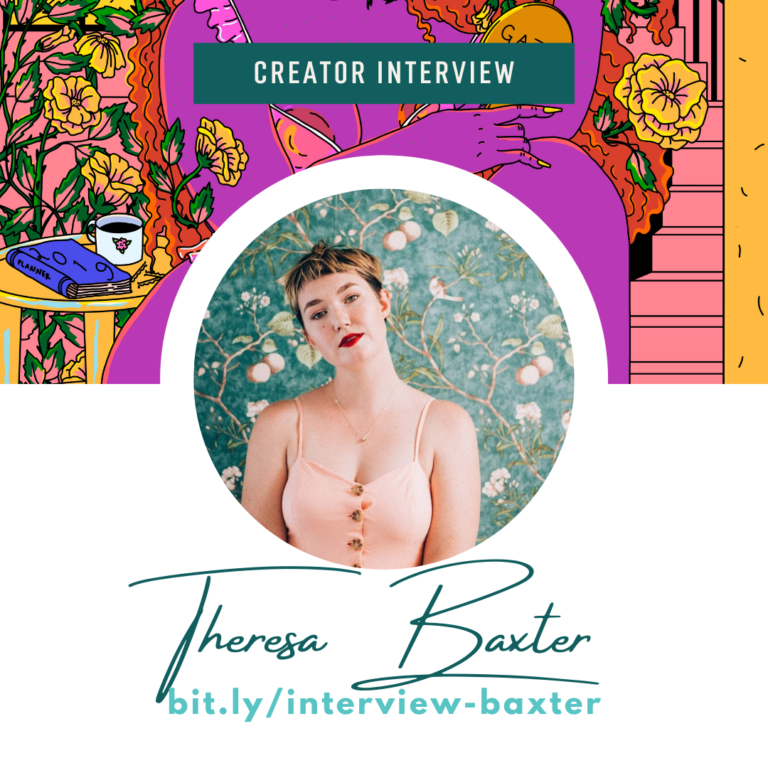Ask a Fat Creator: Lisa Daughters
This is the Body Liberation Photos Ask a Fat Creator (and Allies) series, in which we find out more about the lives, work and breakfasts of all kinds of large-bodied and marginalized creators and their allies.
Lisa Daughters (she/her) is a Licensed Professional Counselor, specializing in Expressive Arts Therapy. She has been counseling for 10 years, and has worked with clients in both structured community behavioral health settings as well as private practice. Lisa utilizes art-making as part of the therapy process, whenever it fits for the client and their process.

Lisa started her career working with a hospice organization doing bereavement counseling. As she worked her way towards independent licensure, she worked with adult substance abuse with homeless and “criminal” populations, and then with teens in foster care. She spent some time facilitating support groups for cancer survivors and caregivers and began private practice in 2015.
Lisa worked in two different small group practices from 2015-2018 seeing adult and teen clients, mostly dealing with anxiety, depression, grief, and family issues. She was lucky to have the opportunity to train under another colleague to learn how best to serve the trans community as well.
Lisa currently works part-time for an online therapy company providing services via video, phone, or messaging (and care for her daughter the rest of the time).
Tell me about you! What’s your name? What pronouns do you use? Where do you live? What do you like to eat for breakfast?
My name is Lisa Daughters (she/her). I live in Hutto, Texas (near Austin). My husband (Ryan) and I have lived here for 2 years and before that, we lived in Phoenix, AZ. I have a 1.5-year-old human daughter (Elora), as well as 2 cats and a dog (Eggs Benedict, Betty Spaghetti, and Pizza Rhythm Nation). In Arizona, I was a belly dancer for about 10 years. We moved to Texas for my husband’s work about 3 weeks after discovering I was pregnant, and I’ve only worked online since she was born so I’m still finding my way here in Texas. He’s an artist as well; he’s been a video game animator for 20 years and creates drawings of me regularly.
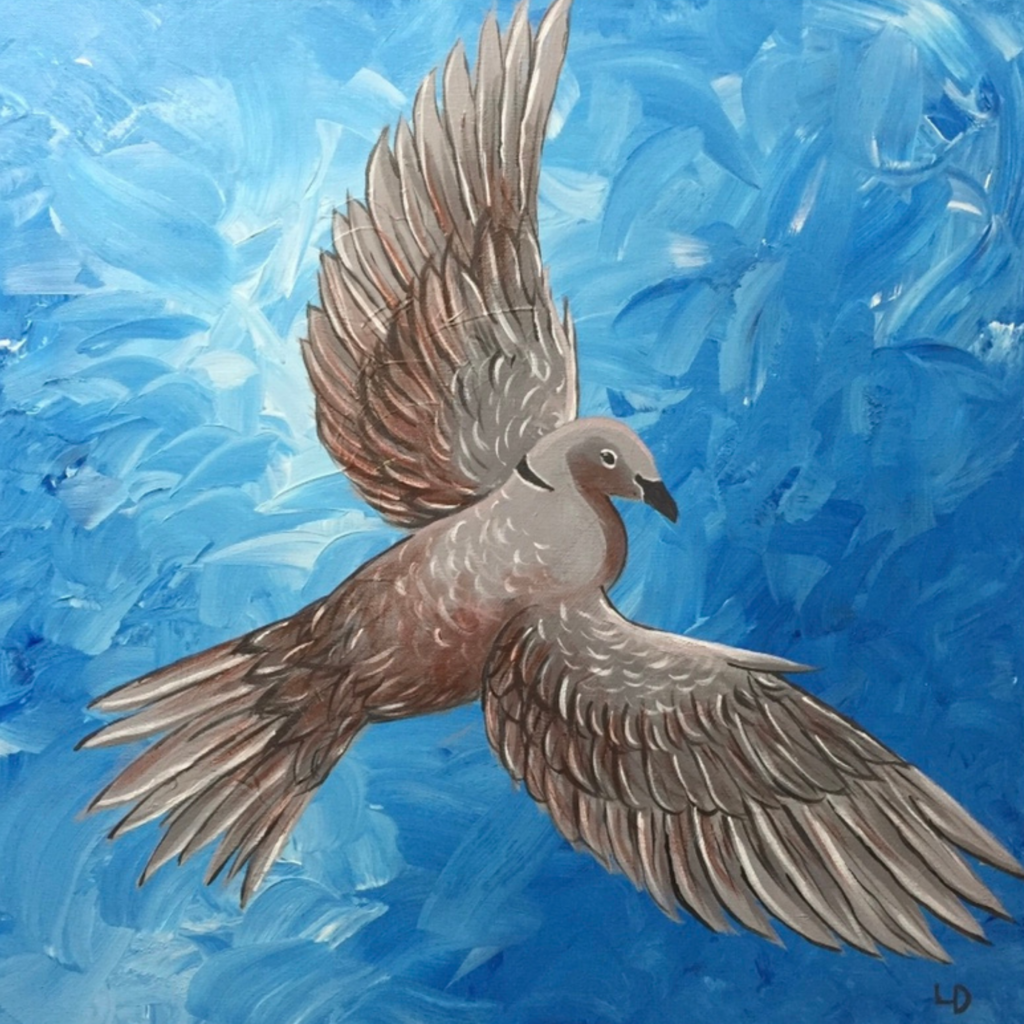
What is your business, and how does it make a difference in the world?
I’m a counselor and I use art making as part of therapy. I’ve struggled with “fitting in” among the mental health world with my perspectives on helping because I don’t like the prescriptive and paternal dynamics that are often part of “treatment.” I think my role is more like companioning as someone finds their own way through.
Expressive Arts Therapy is a modality using art-making as part of the therapeutic process. It’s distinguished from Art Therapy in that it’s heavily focused on the process of art-making rather than the product created. So part of my education included recognizing certain media as evocative of certain experiences, for example using a pencil to draw has more control involved and watercolor is often more emotionally fluid.
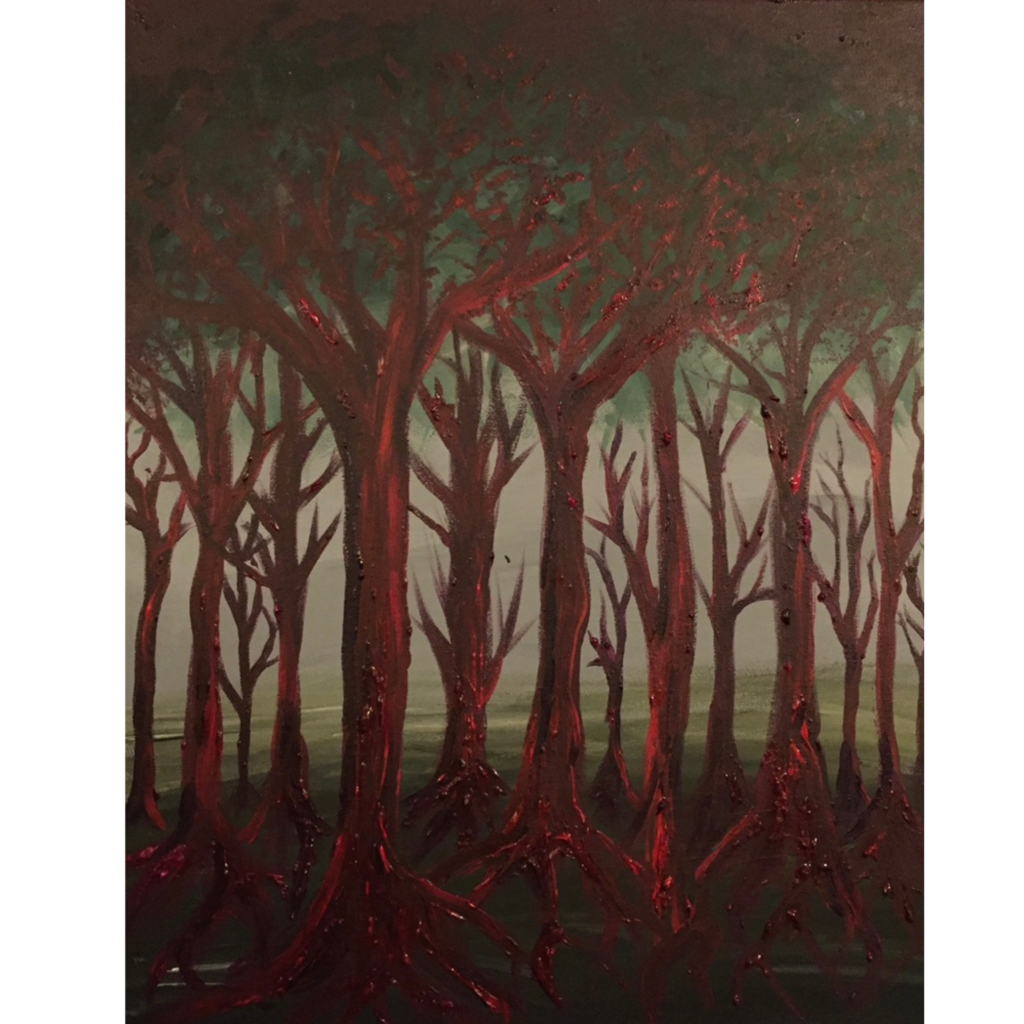
And since I’m creating experiential directives uniquely, art can be anything from poetry made from song lyrics to broken glass. It could be torn paper or droplets of watercolor. And sometimes the art evolves because it IS focused on the experience. An example of this might be: a client creates a piece showcasing powerlessness. And we identify that using the materials felt powerless because they don’t feel comfortable with paint and they don’t like it. So the next step is to ask “what do we do with it now?” and it could be they add something to it, or tear it up, or draw over it, or even trash it. I haven’t had the logistics worked out to burn anything but there have been times that would have been perfect.
So it’s typically not me making the art (although there are times it’s helpful to create along with them); it’s my clients. My role is to create the space and a safe environment, to support them through it, and to help process what they’ve experienced. I do some artwork of my own for personal expression, and as a way to understand intimately what the experiential feel like before I would present them. If I’m going to suggest someone try working with clay, I need to know how that feels. This means I play with a lot of different materials, but I don’t really excel at any of them.
Why is what you do important? How does it change the way people see or how they feel about their bodies?
I think people are amazing and the things we create and accomplish are amazing. But so many people walk around feeling unworthy and disconnected. I think our emotional lives have been pathologized, so we’ve been driven away from trusting our deepest feelings as valuable and beautiful.
Whole worlds exist in people that they feel they have to keep hidden away in order to present only the acceptable parts. Those of us facing the world in a stigmatized body don’t often get away without complex feelings about that body. And those messages that build shame only make it harder for a lot of people to trust themselves, advocate for their own needs, and I believe they deserve to take up all the space (physical and emotional).
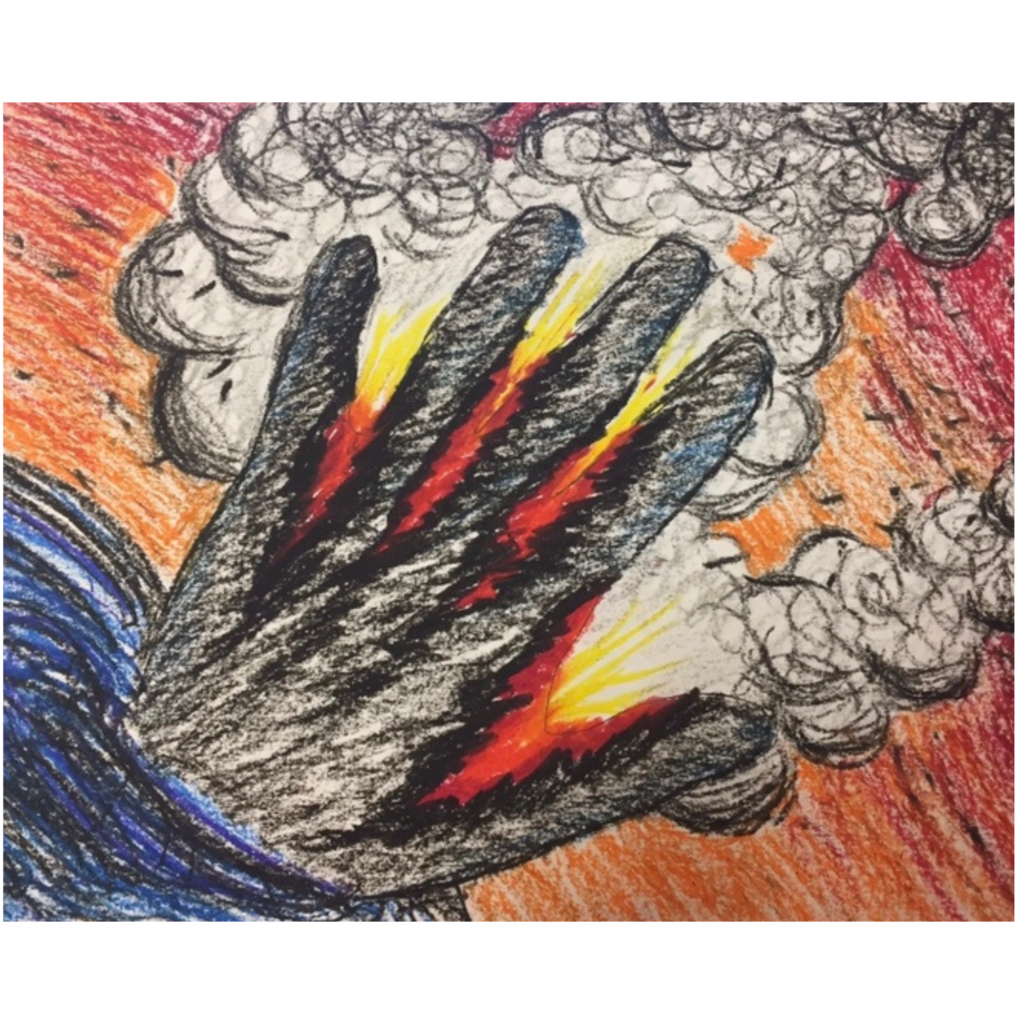
What’s your most popular item/service, or the one you most enjoy doing/making?
One powerful experiential I’ve used is to write notes between aspects of ourselves. For example, what would your body have to say to your heart? The process of characterizing and allowing the body a voice can offer a lot of insight. Sometimes some pretty big feelings are acknowledged, too.
In my own artwork, I’ve enjoyed making images of bodies that look like mine. It’s helped me re-imagine my body; exalt and beautify it. I always find it easier to love and accept other bodies than my own, so if I create a beautiful piece and it looks like me, that disparity shrinks.
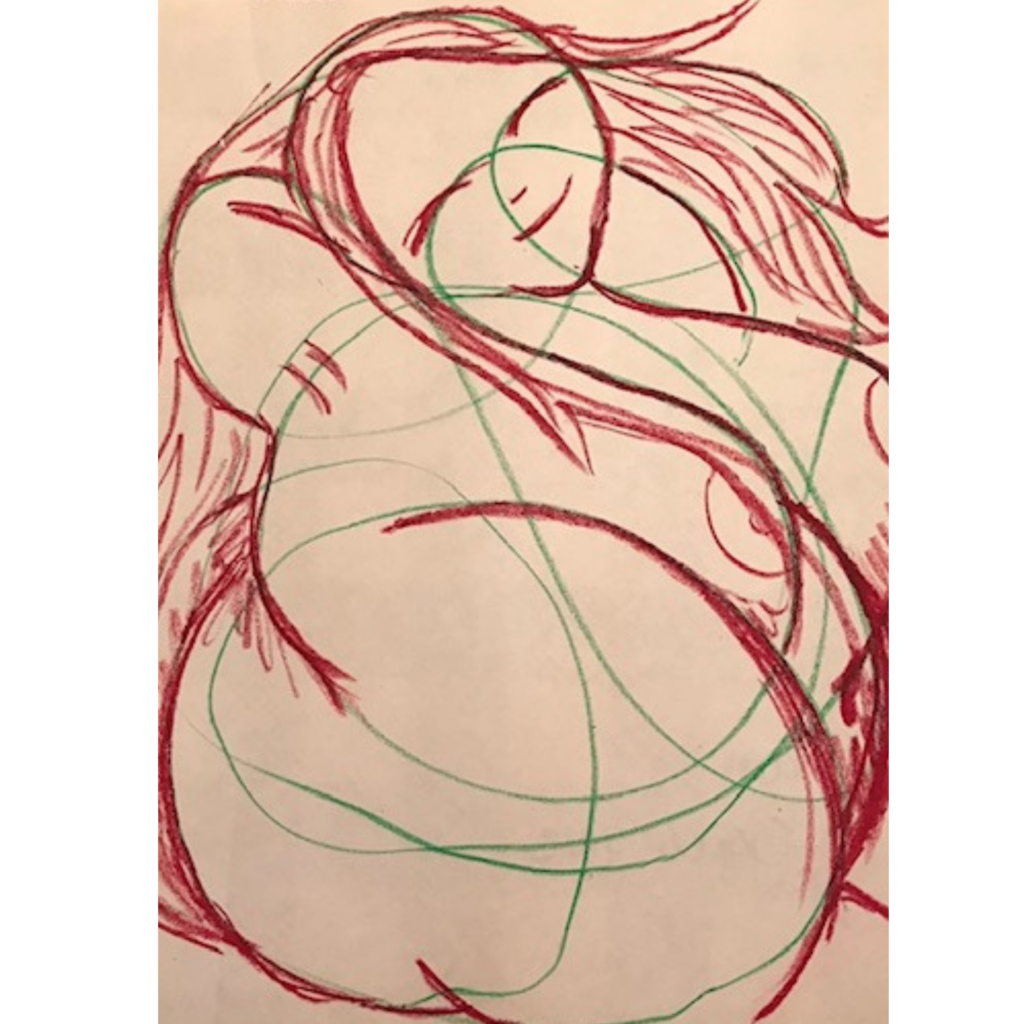
How does body positivity or fat positivity make your business different from others in your field? What has your experience been like?
There aren’t a lot of fat therapists. And there are even fewer fat positive therapists. Unfortunately, bodies are often talked about within the framework of diet culture, and it can be pretty sneaky. There are lots of therapists out there couching their biases in “wellness” and making judgments about peoples’ mental health based on their bodies. I’ve been in counseling as a client on and off most of my adult life, and around therapists as a colleague and I’m disappointed with how often fat people are misjudged and body/food issues are approached.
Expressive Arts Therapy has never been supported well in my field, unfortunately. I had jobs where I was forbidden to use it. I’ve had jobs that are thrilled I have the skill but will not actively support my use by providing materials, space, productivity exceptions or schedule structures that allow for it. I still do (and did) but it’s often been treated like a fun supplement and not a legitimate modality unto itself.
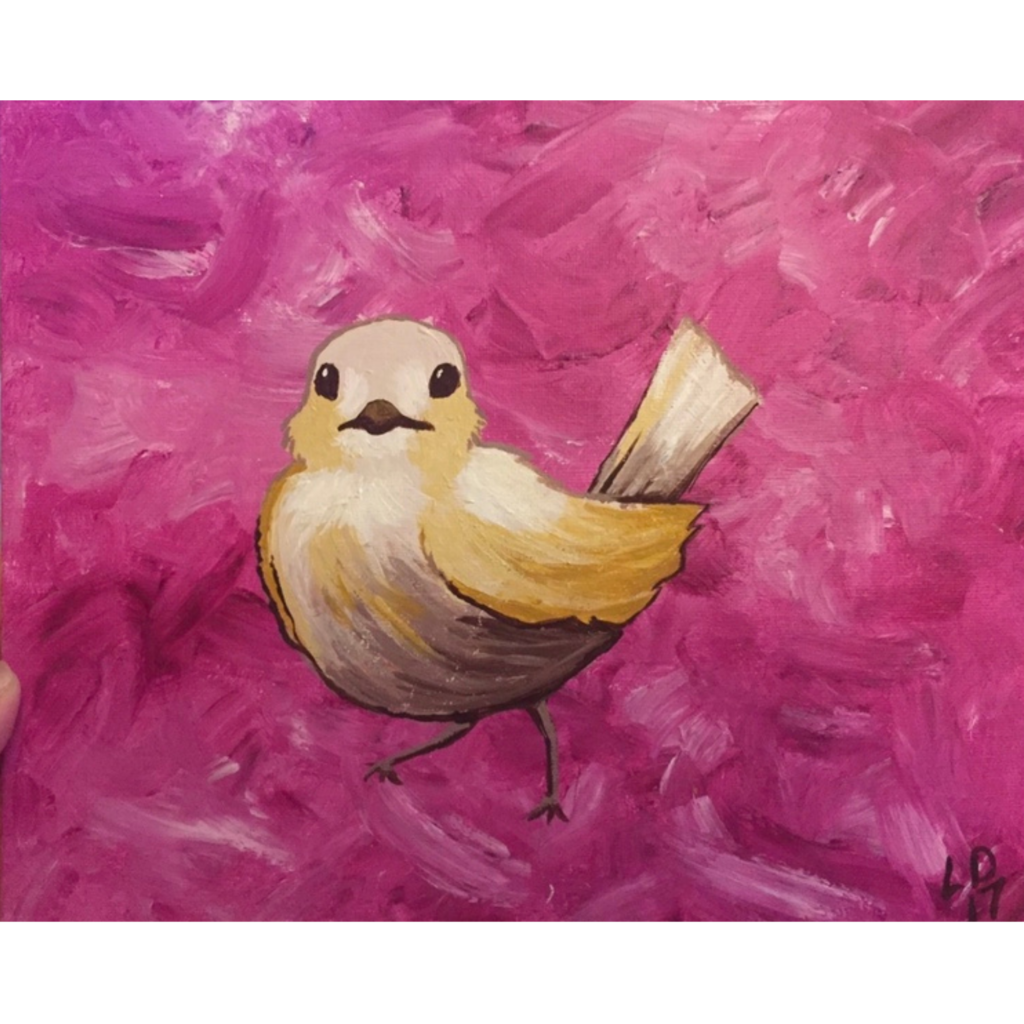
Can you share an instance where you made a real difference for a customer or had some really great feedback from them about your body-positive work?
Not specifically, for obvious reasons. But when a client expresses relief to have a fat therapist, I’m reminded how important representation is. And any sense of relief or loosening of that struggle with the body feels like a victory to me.
How did you discover body acceptance or body positivity personally? What kind of difference has it made for you?
I discovered it through despair, I guess. I’d reached the end of my own rope about all of it. I couldn’t get my body to do what I thought I wanted no matter whose rules I followed or how hard I pushed it. I’d literally done it all and my body just wouldn’t stay small. I was doing my own work with a therapist about my father’s death, and it came up that I felt lost about my latest diet failure. I was working with this cishet small-bodied white male therapist and doing my darndest to put my shame aside and talk about where I was with my body. He asked me if I’d read Health At Every Size (which still sort of surprises me, in retrospect) and gently recommended it when I said I hadn’t. It completely shook my world up and I put it down often to process the loss I felt at first. Then I worked on building my intake of other authors, public figures, books, models – ALL THE THINGS – and just kept going. Just knowing there are voices validating my own experience out there and fighting for better for all of us gave me a sense of placement in the world. There were truly times I felt discarded and unwanted in the world, and I’m grateful every day that the struggle is harder that there’s a community of people where I fit.
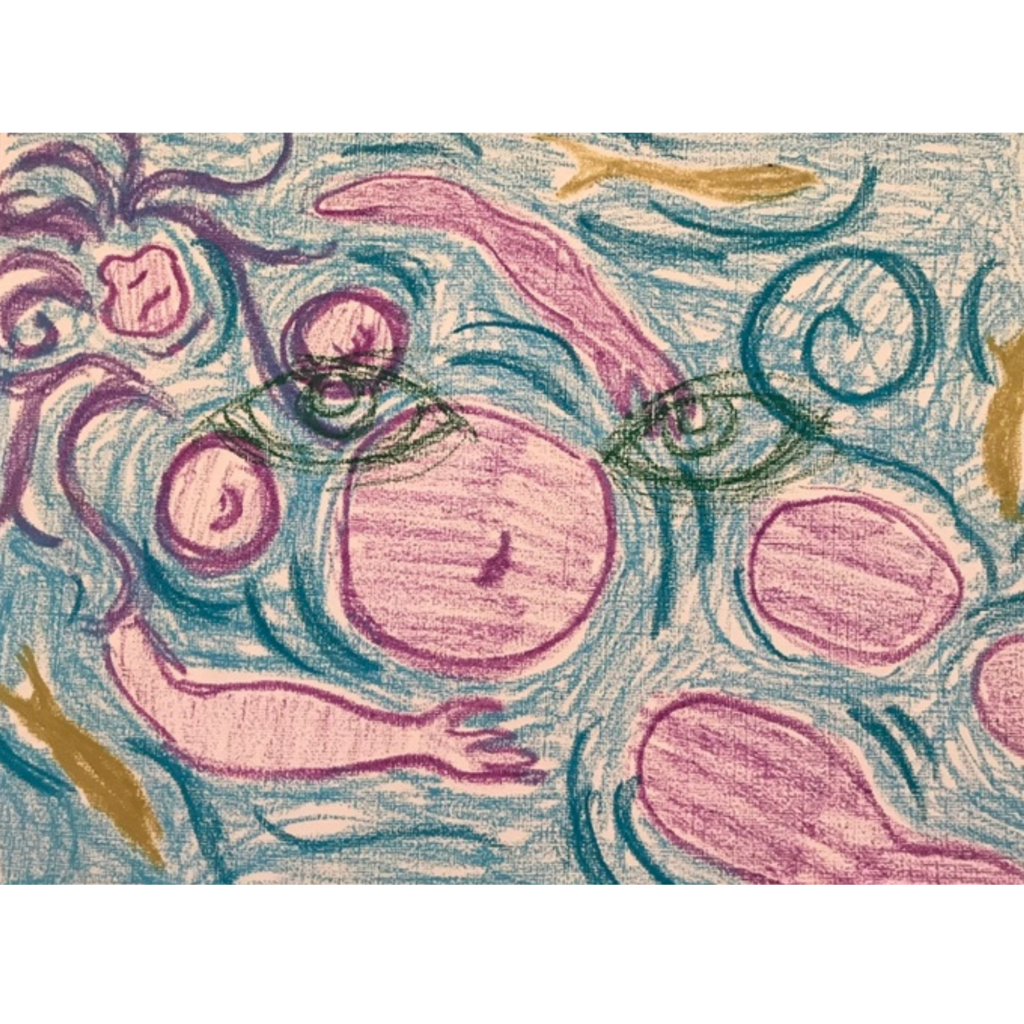
What advice do you have for other people who are learning to love and accept their bodies?
To be patient with all the experiences, to fill their social media (if they do social media) with things that support them, to seek community wherever possible.
What advice do you have for other business owners who’d like to incorporate body acceptance into their work?
I’m exploring this myself, but I think the louder and more visible you can be the better. I think back to when I didn’t even know it was an option to just live my life and not be in constant pursuit of thinness. I remember how much my little heart clung to anything that let me feel like I was valid. All the people feeling invisible and at war with themselves might just get a moment to breathe experiencing fat art.
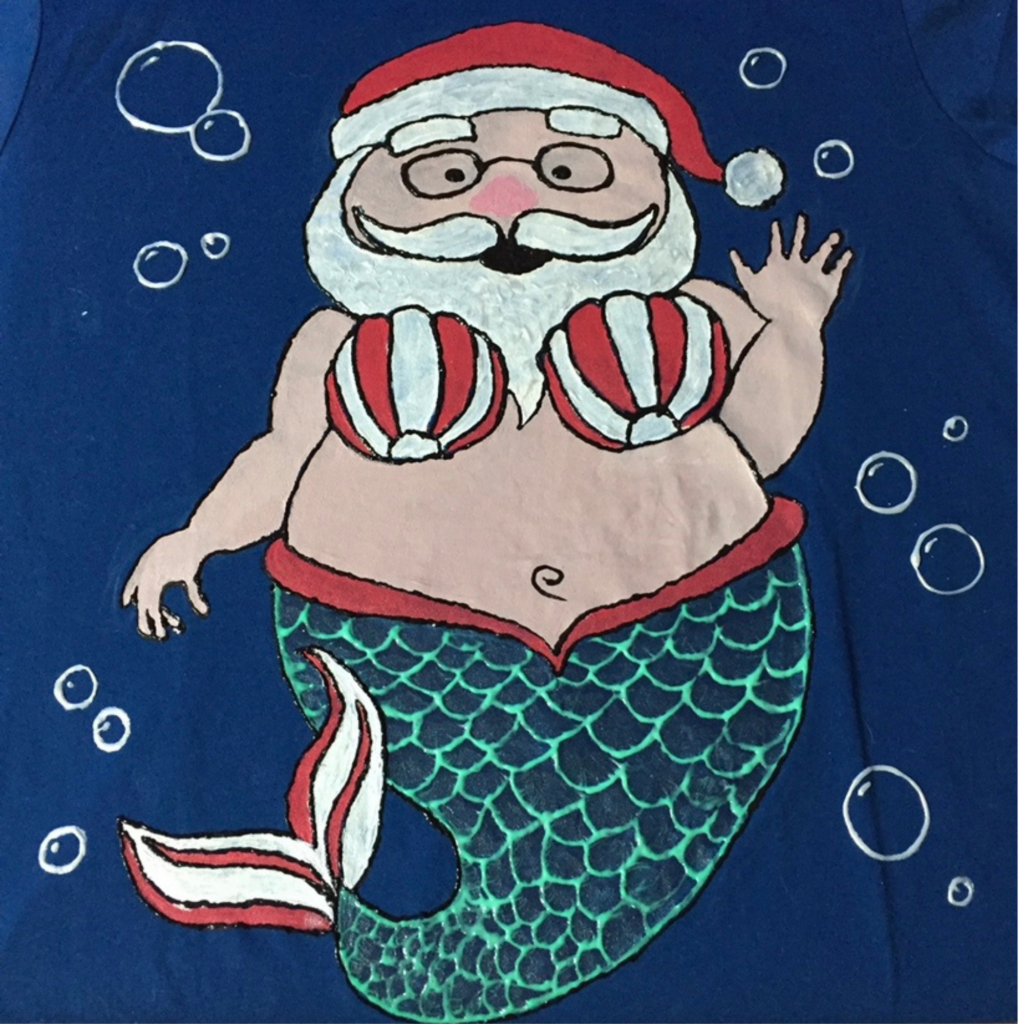
Where can we find more of your amazing work?
I work online now, so the way I integrate art is mostly with “homework” assignments with clients. I’m not typically sought out FOR Expressive Arts so it’s often just me suggesting it as a possibility when appropriate. That means I don’t do it consistently but when it works out, it can be profound. I hope someday to transition all this work to something more cohesive but I haven’t got that figured out just yet.
You can also learn more about working with Lisa here.
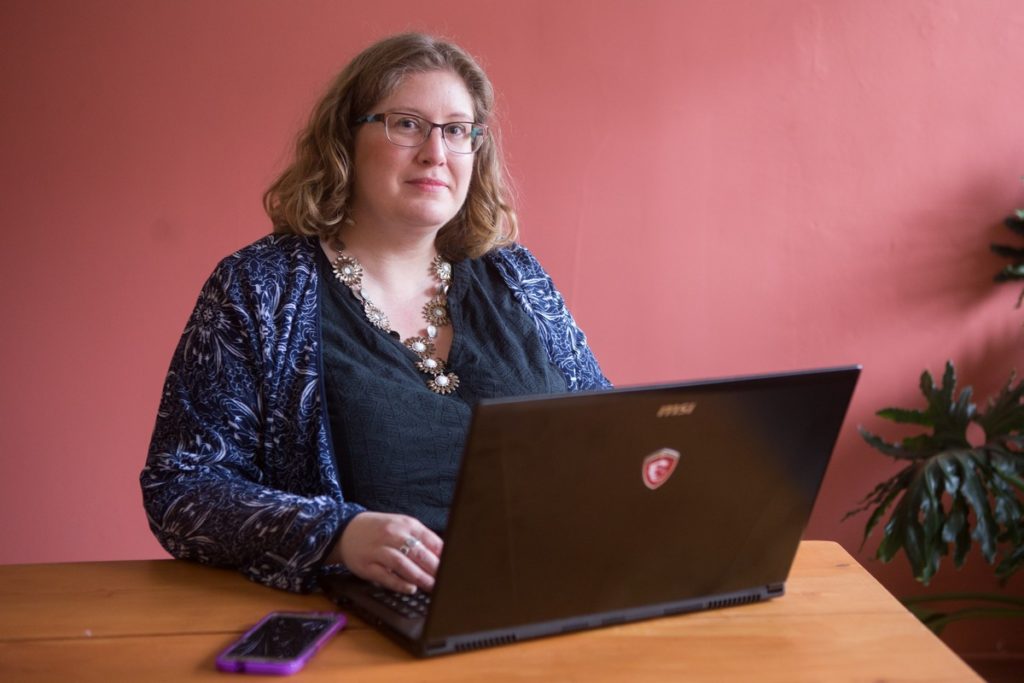
Let’s dig deep.
Every Monday, I send out my Body Liberation Guide, a thoughtful email jam-packed with resources for changing the way you see your own body and the bodies you see around you. And it’s free. Let’s change the world together.
Shelbey Osborne is a 200-hour Yoga Teacher. She is passionate about yoga and astrology and uses these teachings to help individuals connect deeper to their own intuition. She is an advocate for body acceptance and applying a self-compassionate approach to all areas of our lives.



